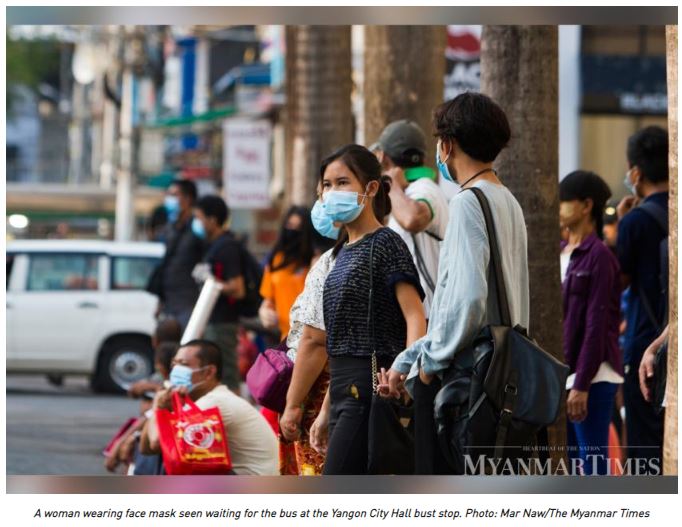COVID-19 increases pressure on Myanmar firms to improve governance
The COVID-19 pandemic shows that corporate governance is vital for Myanmar businesses to manage risks and improve their access to capital, as an increasingly unpredictable environment demands access to capital and loans.
Companies around the world experience serious disruptions to their operations, liquidity and customer engagement. However, firms with modern corporate governance procedures are likely to mitigate adverse effects and fare relatively better given the unprecedented challenges.
Myanmar companies need to think about good governance not only in terms of crisis management but also to adopt a long-term view of benefits. Current business priorities tend to centre around capturing efficiency gains, obtaining licences and coordinating with authorities to shape industry policies. Small- to medium-sized enterprises try to gain a foothold in the market and typically have to commit significant resources to obtain licenses and maintain operations fitted to the local market.
With a growing market and liquidity crunch, business owners will increasingly seek to attract foreign capital, including private equity investments. They might even turn to the stock market in Myanmar to finance their expansion or, more urgently, sustain operations.
The liquidity crunch and limited financial muscle of domestic banks raises the need for firms to seek capital abroad by first meeting international management, governance and transparency standards. These are not yet priorities for most of the local firms. Out of 248 private, public and state-run companies surveyed in the 2019 Pwint Thit Sa report, 108 firms have no disclosure at all.
Those companies starting to adopt best-practices regarding risk management and disclosure early on will be able to tap into foreign investment appetite. Yoma Strategic Holdings, headed by Sino-Burmese tycoon Serge Pun, last year not only raised US$70m in the Thai bond market, but also struck a US$238m deal with Philippine conglomerate Ayala Corp, partly because they are able to supply professional documentation regarding corporate developments and financial performance.
Historically, a vast number of corporate failures around the world are partly due to the lack of proper governance, which contributed to disproportional risk-taking and poor decision-making. Strong governance allows managers to avoid mismanagement and mitigate the impact of crises.
Companies properly run will become more attractive targets for the influx of expertise and capital from abroad.
The rising importance of corporate governance and reporting structures are also expected to be in line with adjustments in investor sentiment, who will likely gain a new perspective on what parameters are crucial in assessing the riskiness of doing business in Myanmar. Hence, the current pandemic will change investors’ perception of systemic risk in Myanmar and how external shocks should be factored into pricing and due diligence considerations.
The evaluation of companies’ risk management and reporting systems will take a higher stake in investors’ due diligence, with companies implicitly forced to focus on the quality of their fundamental data to attract foreign capital.
As such, good governance will help the economic system in Myanmar to become more robust, help companies fare better in difficult times and capture new opportunities. With a developing banking system and the emergence of financial markets, professional reporting and management structures will certainly help firms to capitalise on stock exchange listings and investment opportunities.
Companies can take a systematic approach by putting director duties, treatment of shareholders and stakeholders, corporate disclosures (e.g. annual report, audits, company constitution) under more formalised and robust procedures and thereby ensure the company is subject to proper internal controls. A slew of regulations in Myanmar in recent years have stepped up corporate disclosure obligations, including both a new Investment and Companies Law, central bank directives and disclosure obligations for larger unlisted public companies.
City Mart Holdings succeeded in setting-up effective internal communication systems and has shown agility in keeping pace with Myanmar’s fast-paced development. The firm used its challenging environment to seize opportunities through diversifying operations that match the company’s business model, such as in-store pharmacies or cafés. By rethinking their warehouse system the company managed to cater to an expanding network of stores across the country. Professional management and sound governance contributed to the firm securing financing from the International Finance Corporation in 2016.
Myanmar has partially liberalised key markets such as banking, insurance, fintech, consumer goods and services. Both European and US corporates and investors are expected to increase their exposure to what is considered Asia’s last frontier market over the coming years. According to the IMF’s April forecast, Myanmar is among the few economies still projected to grow this year as the world enters recession.
If small businesses and big conglomerates can clean up their governance and professionalise their management, they would be well-placed to seek financial resources and support from these outside players, as well as to tap into the economic growth.
Fabian Jurewecz is an Associate at SMPP Legal Myanmar and has a degree in finance from Frankfurt School of Finance & Management. This piece was written in his personal capacity and his views do not necessarily reflect the views of SMPP Legal Myanmar.
Source: https://www.mmtimes.com/news/covid-19-increases-pressure-myanmar-firms-improve-governance.html


 English
English




